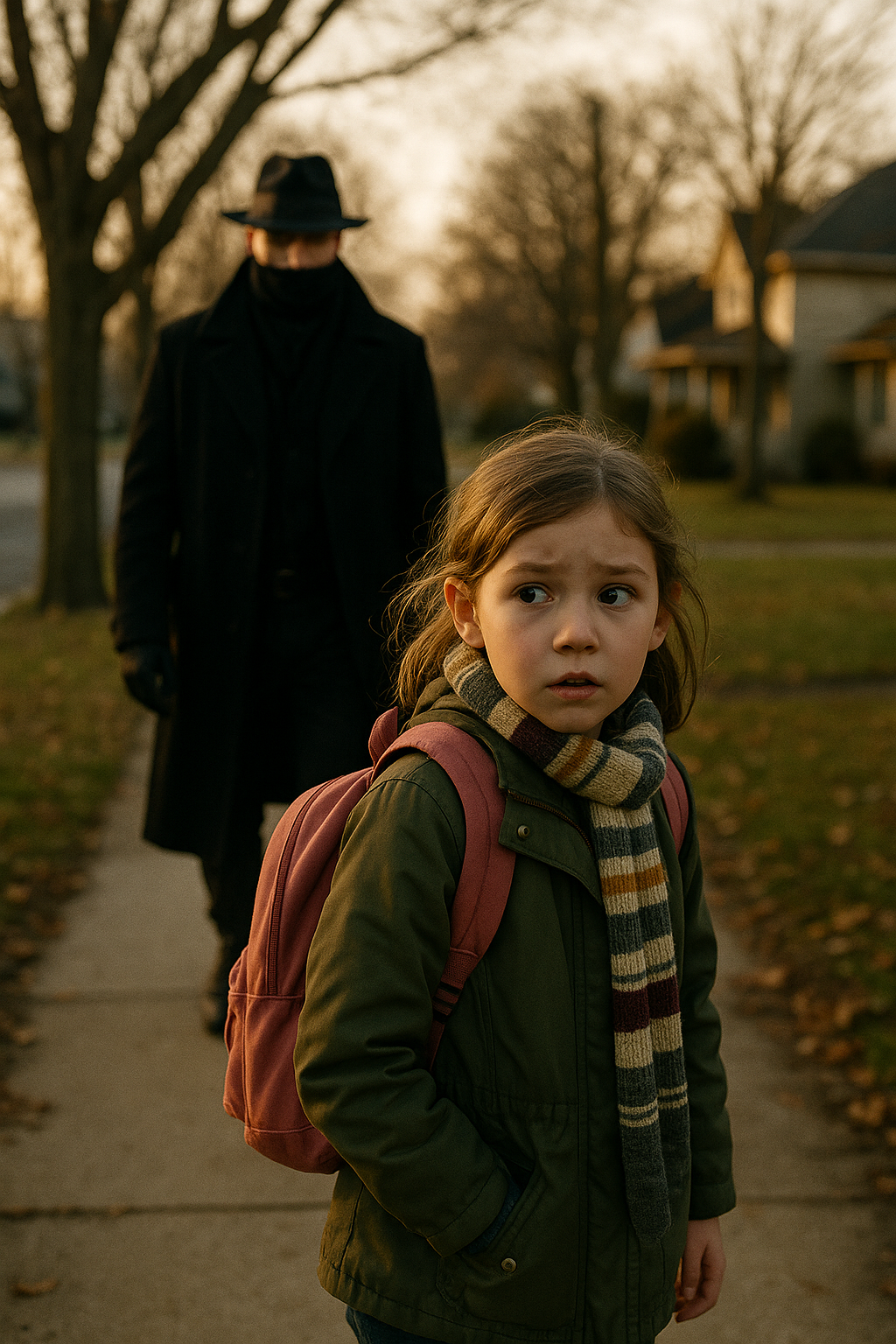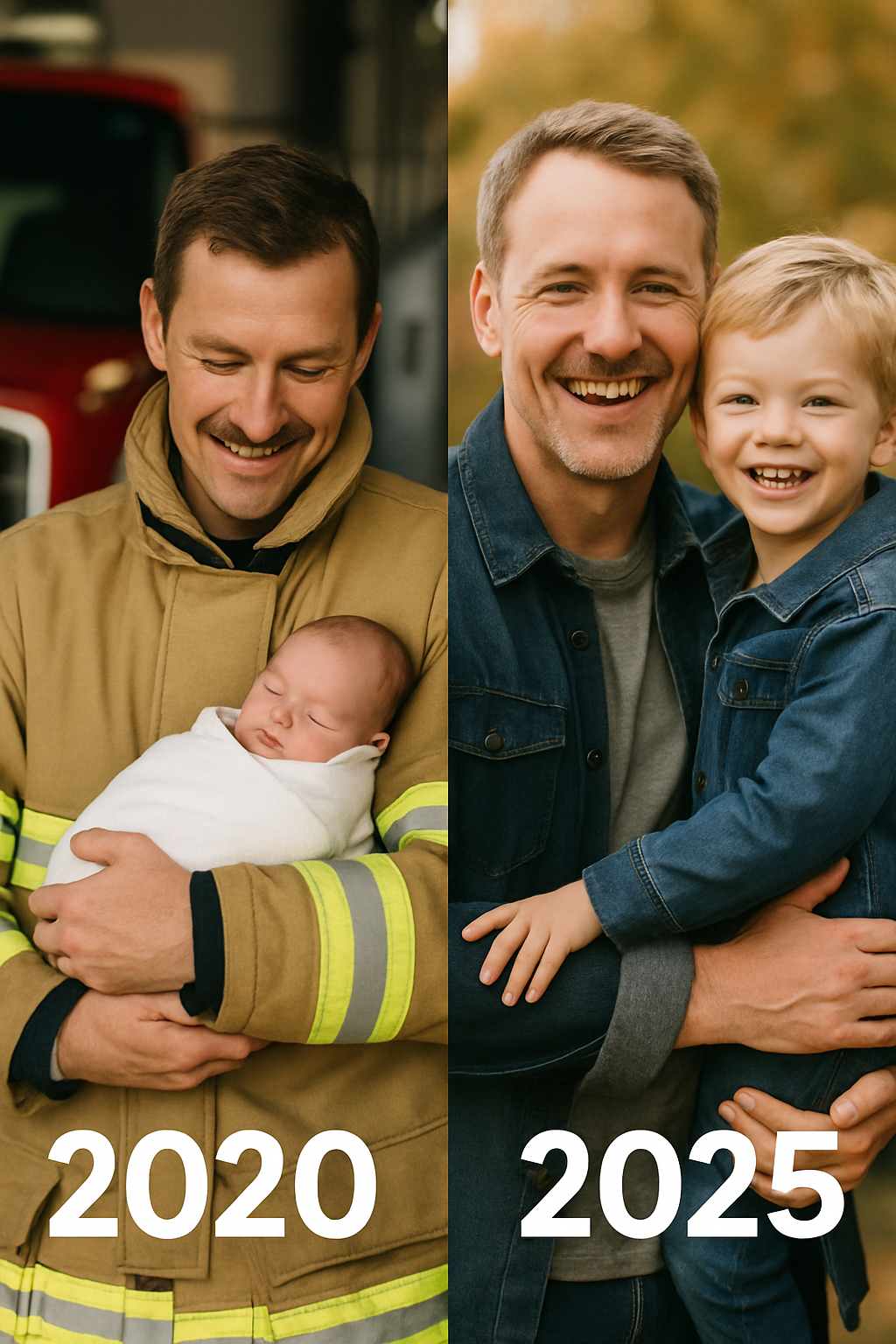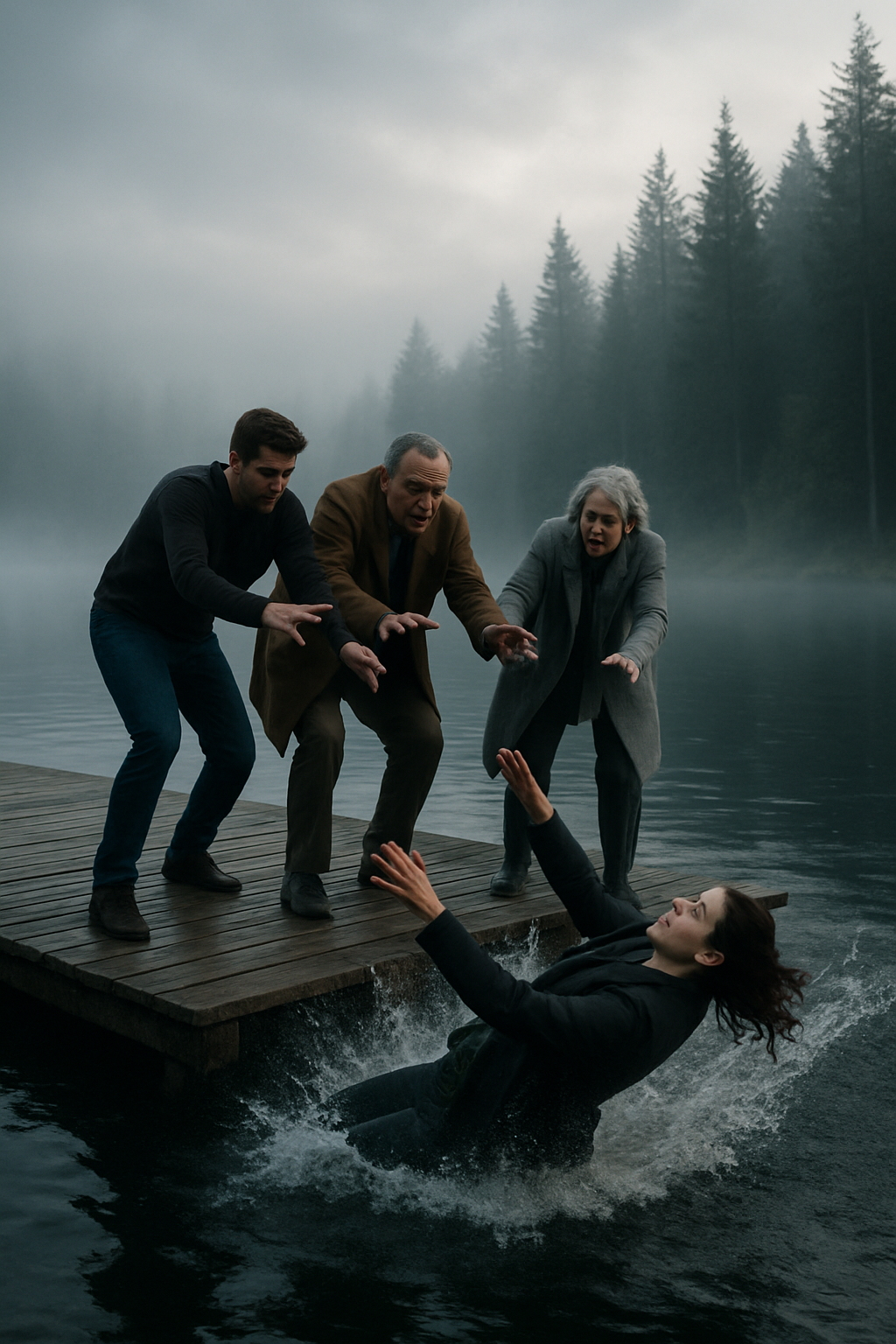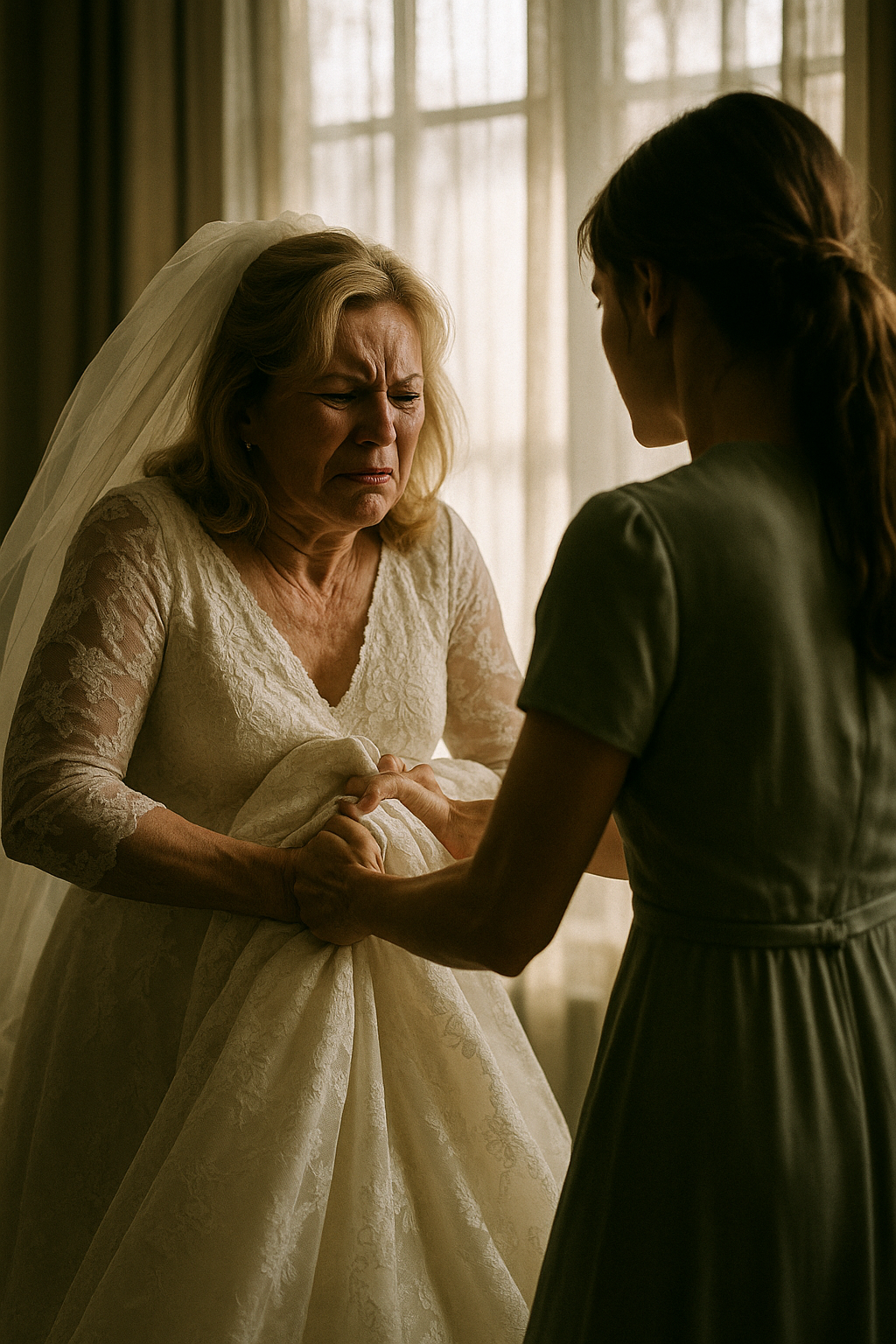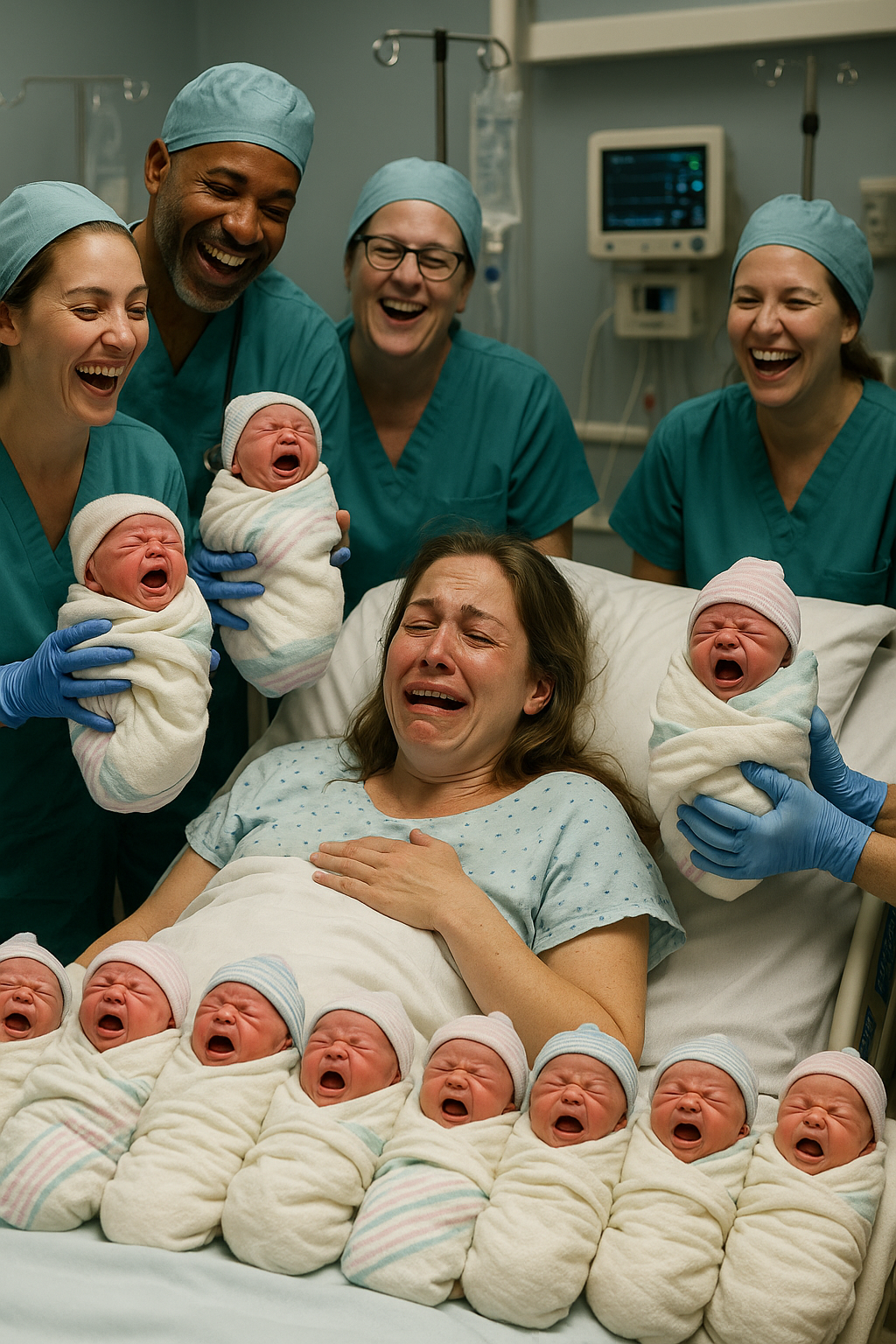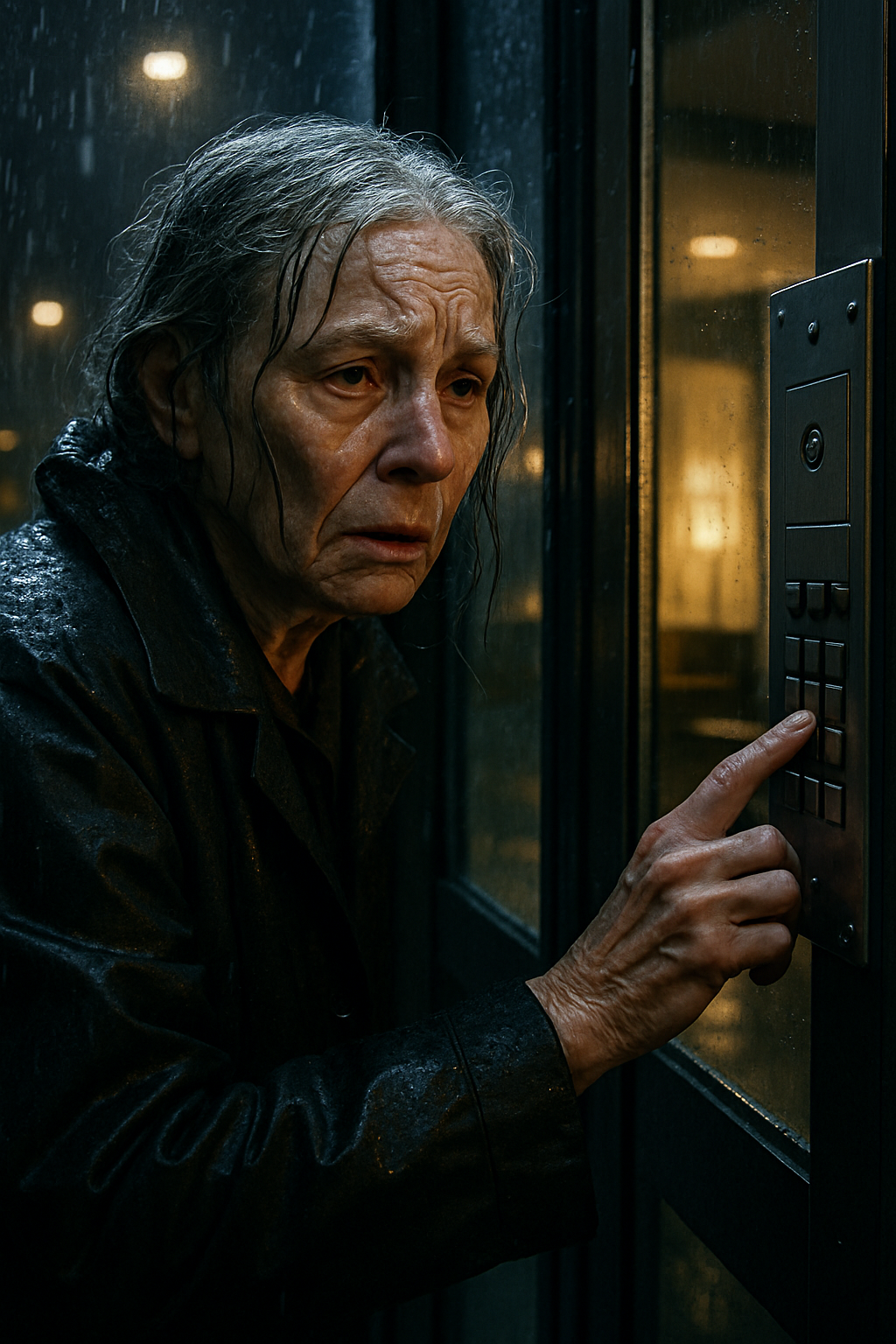The October wind was cruel that morning — the kind that bit through cheap jackets and made every step on the cracked Chicago sidewalk feel heavier.
Ten-year-old Emily Carter pressed her small hands into her pockets as she entered the grocery store. The bell above the door chimed faintly, but no one noticed her. Her shoes were soaked from last night’s rain. She walked past rows of bright fruit, the kind her family hadn’t eaten in months. Her eyes landed on a small carton of milk — $2.29 — sitting innocently behind glass.
Her siblings, Liam and Sophie, hadn’t eaten since yesterday. Liam’s cough was getting worse. Sophie had cried herself to sleep again, whispering, “I just want Mommy.”
Mommy wasn’t coming back.
And their father… well, he was trying. Or at least, that’s what Emily told herself every night when he didn’t come home. He worked construction — or said he did — but the bottle always seemed closer to his hand than the hammer.
So Emily did the only thing a child could do when the world stopped being fair: she made a desperate choice.
She slipped the milk into her bag and tried to walk out.
But before she could reach the door, a hand clamped down on her shoulder.

“Hey! What do you think you’re doing?”
It was Mr. Reynolds, the store manager — red-faced, furious, and loud enough for the entire store to turn and stare.
He snatched the bag, pulled out the milk, and waved it like a trophy. “A thief! A little thief! Stealing from me!”
“I’m sorry,” Emily stammered. “Please, I just—”
“Out! And don’t come back!” He shoved her toward the door. “You’re lucky I don’t call the cops.”
Emily stumbled into the cold, the bell clanging behind her. The box of milk fell and cracked open, white liquid pooling on the pavement. She stared at it, trembling.
And that’s when a man in a dark coat stopped walking.
Michael Harrington, 42, CEO of a logistics empire worth millions, had just stepped out of his black SUV. He was checking his phone when he saw it: the trembling girl, the spilled milk, the shouting manager. Something inside him — a memory — jolted awake.
He remembered being eight years old, barefoot, standing outside a bakery in Detroit, watching his mother beg the owner for a loaf of bread. “Please,” she had whispered. “It’s for my son.”
He remembered the humiliation. The stares. The hunger that never really left.
Michael pocketed his phone and walked toward Emily.
“Hey,” he said softly. “You okay?”
She didn’t answer. Her small hands clutched the hem of her jacket.
The manager stormed out again, muttering, “She tried to steal from me. Kids like that— they never learn.”
Michael turned, his gaze cold and precise. “Kids like what, exactly?”
The man hesitated. “The poor kind. The ones who—”
“That’s enough,” Michael interrupted. He took out his wallet and pulled out a hundred-dollar bill. “Here. For the milk — and for your attitude.”
The manager blinked. “I— you can’t just—”
But Michael had already knelt beside Emily. “Do you have someone at home?” he asked gently. “Someone who’s waiting for you?”
Her eyes welled up. “Liam and Sophie,” she whispered. “They’re hungry.”
Michael stood slowly. Something inside him hardened — not anger, but purpose.
“Come on,” he said. “Let’s get you that milk.”
He drove her to the nearest supermarket, bought groceries enough for a week, and quietly followed her home.
The building was an old, leaning apartment block with broken mailboxes and the smell of damp carpets. When Emily opened the door, two little faces peeked out — wide-eyed, hopeful.
Michael stepped inside and saw what hunger looked like when it had a name.
A single blanket on the floor. No food. Empty water jugs. A fading photo of a smiling woman taped to the wall.
Michael turned to Emily. “Where’s your father?”
“Working,” she said softly. “He’ll be back soon.”
But when the door creaked open an hour later, it wasn’t a working man who entered. It was a ghost — unshaven, sunken eyes, reeking of alcohol.
“Who’s this?” he barked. “You bring strangers now?”
Michael extended a hand. “Michael Harrington. I came to—”
“I don’t need your charity!” the man snapped, slamming his fist against the wall. “You think you can buy us like you buy your fancy suits?”
Emily flinched. Sophie started crying.
Michael looked at him for a long moment. Then, without raising his voice, he said, “I grew up like her. I know what pride costs. Don’t let it take their childhood too.”
And then he left — quietly, leaving the bags of food behind.
Weeks passed. Then, one morning, Michael received a letter.
It was written in a child’s handwriting.
*Dear Mr. Harrington,
Thank you for the food. My daddy is gone now, but it’s okay. A nice lady from school is helping us. I still remember what you said — that hunger doesn’t make us bad. It just makes us try harder.
When I grow up, I’ll help someone too. Maybe I’ll even buy them milk.
Love,
Emily*
Michael folded the letter, placed it in his wallet, and sat for a long time in silence.
Because sometimes, it’s not the millions you earn that matter.
It’s the $2.29 you spend that reminds you who you are.
And somewhere, in a little apartment in Chicago, three children slept that night with full stomachs — and a future that suddenly didn’t feel impossible.
What if kindness wasn’t random — but a responsibility we all share when we see hunger, in any form?
